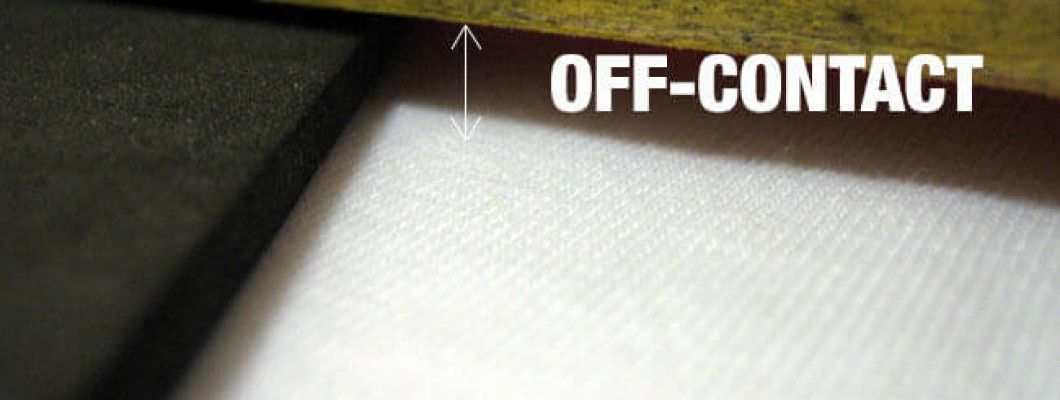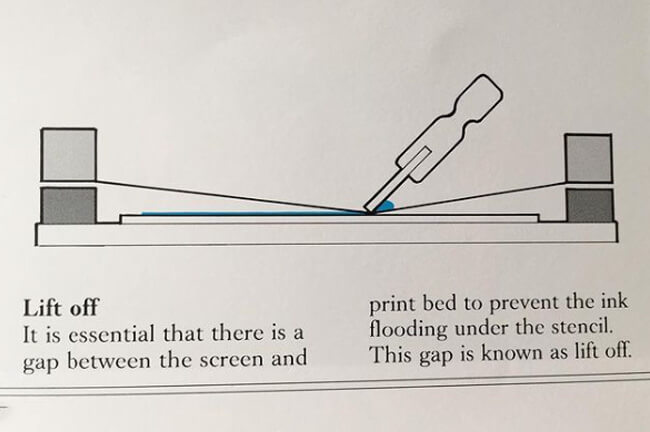
The off-contact is the distance between the screen printing frame and the printing substrate when the squeegee passes to deposit ink. This separation is essential for obtaining sharp and consistent prints.

How It Works
During printing:
- The frame is raised 1-5mm from the substrate (off-contact)
- The squeegee, pressing the ink, momentarily brings the mesh into contact with the material
- The frame returns to its original position after the pass
Why is Off-Contact Important?
Proper adjustment directly affects:
| Parameter | Effect |
|---|---|
| Sharpness | Prevents smudging and double impressions |
| Consistency | Ensures even ink distribution |
| Frame Longevity | Reduces wear on mesh and emulsion |
| Clean Release | Allows the frame to lift without dragging ink |
Expert Says:
"Without off-contact, the mesh would stick to the substrate causing smeared prints and difficult release" - Marco Rossi, professional printer
How to Adjust Off-Contact
The optimal setting depends on:
- Material being printed
- Mesh tension
- Frame size
- Ink type
Adjustment Method
- Initial measurement: Use feeler gauges or spacers
- 3-5mm for fabrics
- 1.5-3mm for paper/cardboard
- 0.5-2mm for plastic/metal
- Test prints: Run tests with different distances
- Fine adjustment: Modify gradually (0.5mm at a time)
Common Problems and Solutions
1. Smudging and Double Impressions
Cause: Insufficient off-contact
Solution: Increase distance by 1mm and check mesh tension
2. Incomplete Ink Coverage
Cause: Excessive off-contact
Solution: Gradually reduce distance
3. Difficult Release
Cause: Over-tensioned mesh or incorrect squeegee angle
Solution: Adjust to 75° angle and verify tension
Warning!
Improper off-contact can cause "ghosting" (image shadowing) in subsequent prints.
VIDEO TUTORIAL
Practical Adjustment Examples
Example 1: Cotton T-Shirts
- Frame: 55T - 20N/cm tension
- Ink: Plastisol
- Ideal off-contact: 3mm
- Problem solved: Eliminated edge bleeding
Example 2: Thick Paper Posters
- Frame: 100T - 25N/cm tension
- Ink: Water-based
- Ideal off-contact: 1.5mm
- Problem solved: Improved ink adhesion
Example 3: PVC Panels
- Frame: 77T (195 mesh), 18N/cm tension
- Ink: UV
- Ideal off-contact: 0.7mm
- Problem solved: Enhanced fine detail reproduction
Conclusion
Off-contact is a fundamental parameter that separates amateur prints from professional results. Experimenting with different settings and keeping records of optimal configurations for each frame/ink/material combination is key to consistent results. Remember: small adjustments can make a big difference!

Leave a Comment